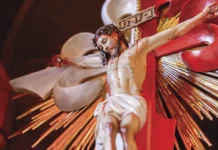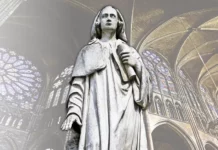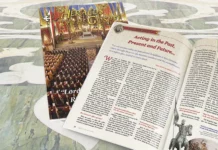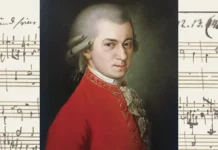Along with an extraordinary laurel wreath, he would also reap the thorns of envy and ingratitude from the least expected sources.
Many figures have shone in history for their dedication, bravery and fidelity. These virtues, however, take on a special lustre in those who succeeded in practising them amid tremendous setbacks, dangers and sufferings. These lines will be dedicated to recounting how one intrepid hero faced just such obstacles.
A military vocation
Born in the city of Montilla in 1453, Don Gonzalo Fernandes de Córdoba was the second son of a noble Castilian family.
His father died young. Before surrendering his soul to God, however, he entrusted his family to a friend with similar aristocratic roots: Don Diego de Cárcamo. This nobleman served as a tutor to little Gonzalo and instilled in him an appreciation for grandeur, combativeness and uprightness, essential virtues for every knight, especially in Spain at that time, where war was an unceasing reality.
The young man was not late in entering the fray. Under the command of Captain Alonso de Cárdenas, he took part in the armed conflict against Don Henrique of Portugal, forming part of a company of one hundred and twenty knights of the Order of Santiago, among whom he stood out for his courage, audacity in battle and impressive military genius. He soon became known for his qualities, according to these beautiful lines from a famous historian:
“The gallantry of his person, the majesty of his conduct, the vivacity and promptness of his ingenuity, aided by an effortless, lively and eloquent discourse, won over every heart […]. Gifted with robust strength and adroit at every military skill, […] he always garnered praise; and all who saw him were unanimous in acclaiming him as the prince of youth.”1
Chivalry and wit

He was a knight through and through, which was evident in his refined manner of acting.
Once, when Isabella the Catholic was returning from Flanders – where she had journeyed with her daughter Joanna – and her ship was having trouble docking, Don Gonzalo jumped into the water to help the sovereign, without giving a thought to his clothing of silk and velvet, because he would not allow the hands of sailors to touch her.
On another occasion, during the siege of Granada, the Queen’s tent caught fire. The captain sent for furnishings from his own house to replace the belongings that had been burned in the royal tent. Isabel, seeing the quantity of carpets, furniture and garments being delivered to her, said to the Andalusian nobleman:
“The fire has caused greater loss to you than to me.”
To which he responded:
“All this is but little to offer a queen.”
His courtesy served to set off the impetus and combativeness of this daring military man, who was continually engaged in wars in defence of the Faith and his monarchs. Armed with such qualities, he played an important role in the Reconquista and capitulation of Granada, and then set out for Italy to protect the positions and interests that his sovereigns, the Catholic Monarchs Ferdinand and Isabella, held in Naples.
The first campaign in Italy
As Captain Gonzalo was the Queen’s most trusted man, there was no other better suited than him for this difficult task. When he landed in the Italian Peninsula with his five thousand infantrymen and six hundred knights, he had to face no less than twenty thousand foot soldiers and five thousand light cavalry accompanying the King of France, Charles VIII, to ensure the success of his territorial expansion efforts.
Don Gonzalo realized that the traditional fighting methods – with heavy cavalry charges – would be counterproductive, given the disproportionate numbers and the great equestrian skill of the French troops. Accordingly, he decided to employ a somewhat different tactic to confront his enemies…

The birth of the “tercios”
Up to that time, the common and most efficient modus operandi employed in warfare had been for the heavy cavalry of the opposing forces to measure their strength in a head-to-head clash in an open field. The momentum of those two iron walls was so powerful that they would annihilate anything that came between them.
However, long years of military experience in the Iberian Peninsula helped the Queen’s favourite officer to conceive, organize and carry out an unusual manoeuvre, but one that would prove very effective for centuries. It consisted in the almost exclusive use of infantry – a novelty that left everyone disconcerted.
In order to cope with this particular challenge, Don Gonzalo divided his army into three parts, which probably gave rise to the name tercios [thirds], by which these formations came to be known. The first line of soldiers were armed with pikes or halberds, in order to parry the cavalry onslaught on foot; behind them stood the arquebusiers, to halt the thrust of the opponents with their expert markmanship; and lastly the rondelas [sword-and-bucklers] – the name derived from their round shields, called bucklers – skilled swordsmen who would finish off the action, fighting hand to hand with what remained of the ill-fated charge.2
This formation, employed by Don Gonzalo in most of his battles, together with his ingenuity and skill, overwhelmed all his opponents and increased his fame to such an extent that he received the title of El Gran Capitán [The Great Captain].
Italy calls again
Having re-established order in Naples, he returned to Spain, laden with laurels. However, he would not remain long in his homeland. After a few years, during which he commanded expeditions to quell the revolts of Muslim remnants in the Andalusian region of the Alpujarras, he was summoned to a new campaign on the other side of the Tyrrhenian Sea.
The Treaty of Granada and a Bull of Pope Alexander VI had divided the territories of Naples between the crowns of France and Spain. However, possession of the central regions of Italy was not so clearly defined, and this triggered inevitable disputes between the two monarchs.
Both then entrusted the resolution of the problem to their best commanders, respectively. On the French side, the Duke of Nemours, Louis d’Armagnac, was chosen; on the Spanish side, the peerless Gran Capitán.
Nemours invited Don Gonzalo to hold negotiations. After futile meetings, in which they each explained their reasons for taking possession of the land, both were persuaded that the only means to effectively put an end to the dispute… was by arms.

The battle of Garigliano
Numerous battles followed these discussions and, although Nemours died at the Battle of Cerignola, the French only lost hope of mastering the situation after the tremendous battle that took place on the banks of the Garigliano River.
The French army sought to cross the water in order to engage in battle, but Don Gonzalo and his men were stationed on the other bank, and rendered futile all their opponents’ efforts to build a bridge. In the end, after many attempts, the French succeeded in extending the structure, made of barrels and planks of wood, to the opposite shore.
Bloody skirmishes ensued, from which they would have emerged victorious had the weather not thwarted them. Torrential rains broke out and the current rose so high that the bridge became impassable. Both armies retreated to their respective camps. The combat was temporarily suspended…
In the meantime, the Spaniards, who, due to the layout of the terrain, were positioned at a lower elevation and suffered more from the inclement weather, were running out of supplies.
The officers of the Great Captain made the suggestion of going to Capua, a city not far away, in order to restore the soldiers’ strength. His reply was categorical: “I would rather meet death by taking three steps forward, than live another century taking one step back.”3 Then, Don Gonzalo gathered a select band and gave them the risky mission of secretly going to a certain point on the riverbank where, out of sight of the French, they could build another bridge.
Once the task was completed, almost the entire Spanish army crossed the river. Being attacked by surprise, such chaos gripped the unprepared French soldiers that their only defence was to flee in a desperate attempt to save their lives. For a second time, the victory of constancy over carelessness and vigilance over lack of foresight drove the French from Naples.
The Great Captain’s accounts
Such glory, however, was not to everyone’s liking… Among the malcontents was King Ferdinand who, after the death of his wife Isabella, did not look kindly on Gonzalo de Cordoba.

We do not know at what point truth may have given way to exaggeration in these reports, but it is said that, instigated by several other envious persons, the monarch was constantly looking for some pretext to rid himself of the one he thought was overshadowing his glory. One day – and this is a documented fact – Ferdinand demanded that Gonzalo appear in court to justify the large sums of money he had used in the last campaign, since, according to his detractors, the exorbitant sum could only have been the result of some embezzlement.
El Gran Capitán was unmoved by this outrage to his honesty, and the next day, opening a note-book, he read the list of the company’s expenses: “200,736 ducats and 9 reals on friars, nuns and the poor to pray to God for the prosperity of the king’s arms; 700,494 ducats on spies; on picks, shovels and pikes, 100,000,000 ducats; on perfumed gloves to preserve the troops from the stench of dead enemies, 40,000 ducats; and, finally, 300,000,000, the value of my patience, lost in listening to people who ask accounts from the one who gave them kingdoms (this last item was not read before the king).”4
At the comical enormity of these figures, everyone present burst out laughing. Ferdinand remained silent. He ordered the session to be closed, and from that day on he never mentioned the subject again.
The Great Captain remained the faithful vassal of his master, even after having been the target of his mistrust and ingratitude, and after having been relegated to a second plane by the one he had only desired to serve.
Before God there are no anonymous heroes!
It is painful to see that, over the years and through the centuries, events such as these occur again and again. Often the most courageous, faithful and dedicated servants of just causes continue to be the object of envy, slander and persecution on the part of those who do not know how to measure their value.
However, this lack of recognition from the world in no way diminishes the grandeur of those who maintain their unblemished fidelity until the end and who will always be rewarded. Indeed, if it is true that many do not appreciate them – and no one is surprised that this happens among mortal men – it is also true that before God there are no anonymous heroes. ◊
Notes
1 MONTOLIU, Manuel de. Vida de Gonzalo de Córdoba (El Gran Capitán). 6.ed. Barcelona: Seix y Barral, 1952, p.12.
2 Cf. MARTÍN GÓMEZ, Antonio Luis. El Gran Capitán: las campañas del Duque de Terranova y Santángelo. Madrid: Almena, 2000, p.14.
3 MONTOLIU, op. cit., p.82.
4 Idem, p.99.







